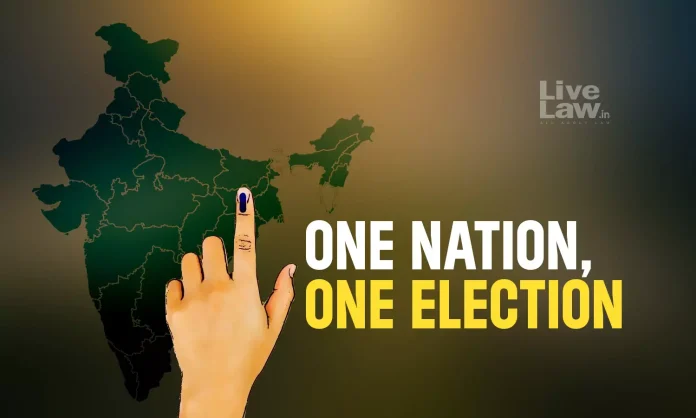- People closely following the Indian political churning would have noticed the country is perennially in one or the other form of elections around the year. It could be the parliamentary elections to both houses, state assembly polls, council polls, by-polls, zilla panchayat, taluk panchayat, village panchayat, corporation, municipal, and other as well. What this also denotes is that the several administrative machineries of the country will be perpetually in election mode. Further, with the model code of conduct kicking in, the governments will be restrained from carrying out regular administrative measures since any new socio-economic initiatives will have to wait till the voting process is complete. This is painstaking for anybody, including the government.

PC: The Leaflet
- In a country like India with such a diverse, well-spread out, and extremely large swathe of landscape hugely populated by citizens means the government machinery should be working at full throttle without ever showing signs of fatigue and/or saturation. However, what’s happening presently with the perpetual elections being conducted around the year, some of the intended governance measures take a backseat. As such, the ruling dispensation at the Centre, the Bharatiya Janata Party came out with a proposal to conduct simultaneous elections to the parliament and state assemblies. Thus, the One Nation, One Election (ONOE) proposal took shape with the saffron brigade vociferously pushing for electoral reform.

Pc: Hindustan Times
- For the uninitiated, note that soon after the country’s independence, the elections were held simultaneously for the union and state governments. As you are aware, this process got delayed with the imposition of the emergency and the subsequent dissolving of elected governments in the 1970s leading to concurrent elections getting derailed. Nonetheless, the BJP has been found aggressively pushing for the ONOE in the last couple of years which not only found mention in the party’s manifesto but also was endorsed by the Prime Minister himself. A suitable bill was introduced in the recently concluded winter session of parliament and the same was referred to the Joint Parliamentary Committee (JPC) for further deliberations.

PC: India Today
- As is their wont, the opposition parties wasted no time in not only rejecting the proposal outright but also cast aspersions on the intention of the ruling dispensation for even opting to push the same. Think about it, a huge amount of money is spent on carrying out even a village-level election, and the less said the better about the money that goes into conducting other big elections. Even though the Election Commission of India has set a bar on the money to be spent by individuals fighting elections, the countrymen are aware of how big an amount is spent. Thus, it makes imminent sense to seriously consider embracing ONOE unanimously keeping the country’s welfare in mind. Will the opposition parties veer around to this idea? Unlikely.






